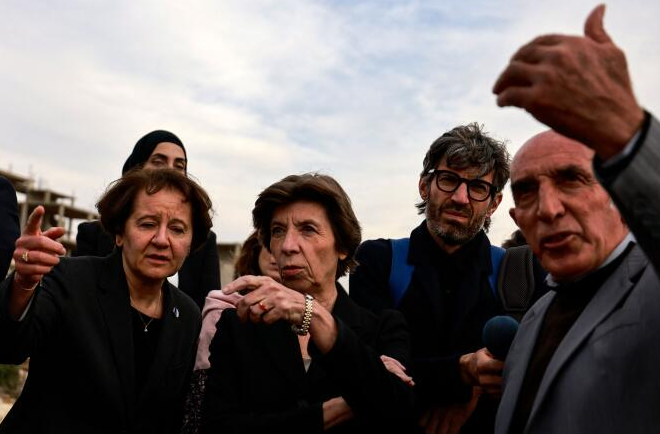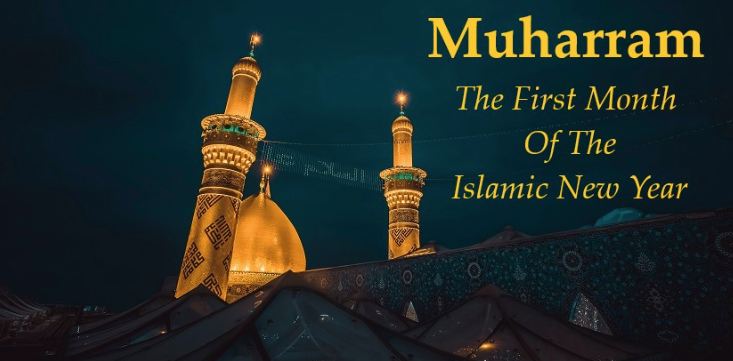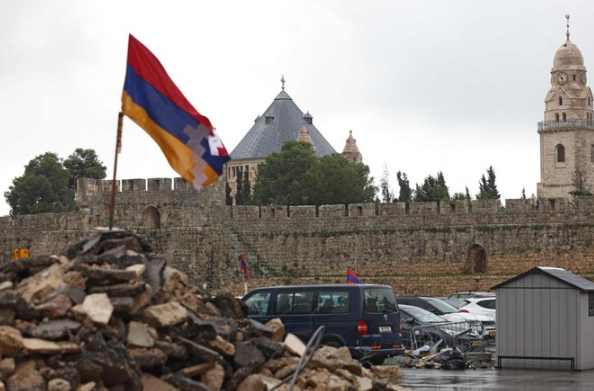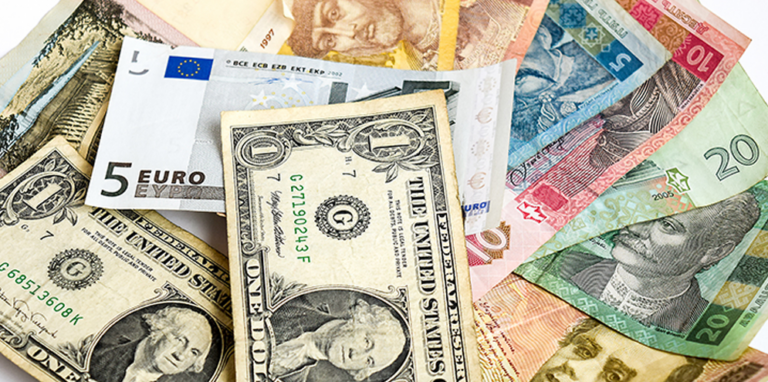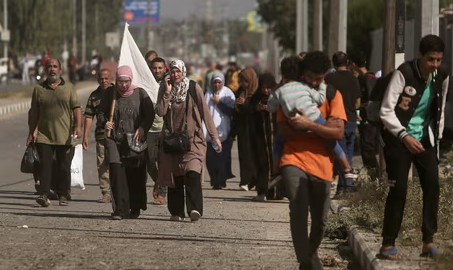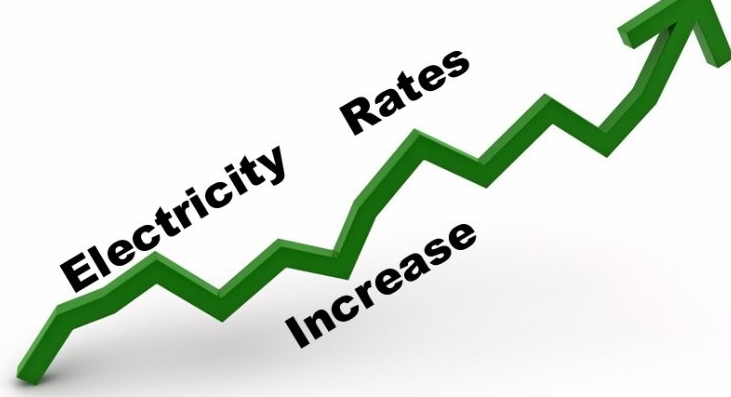French Foreign Minister to Hold Talks in Lebanon to Ease Tensions on Israel Border
BEIRUT: France’s top diplomat is scheduled to arrive in Beirut later today for discussions aimed at reducing the frequency of clashes along the Israel-Lebanon border, raising concerns of a potential full-scale conflict.
Foreign Minister Catherine Colonna is anticipated to emphasize the need for responsibility and restraint during her meetings with Lebanese Prime Minister Najib Mikati and Parliament Speaker Nabih Berri, a key ally of the Iran-backed Hezbollah.
Since October 8, following the commencement of the Israel-Hamas conflict, there has been a surge in exchanges of fire along the Lebanon-Israel frontier, primarily involving the Israeli army and Hezbollah, claiming to act in support of Hamas.
Growing concerns of a broader conflict have been fueled by other Iran-backed groups targeting US-led coalition forces in Iraq and Syria, as well as Yemen’s Houthi rebels attacking shipping in the Red Sea.
During her visit to Israel on Sunday, Colonna urged all parties to “de-escalate” tensions along the Lebanon-Israel border. She emphasized, “If things were to spiral out of control, I don’t think anyone would benefit.”
Facing political paralysis and a severe four-year economic crisis, Lebanon is ill-equipped to handle another devastating conflict between Israel and Hezbollah, who last engaged in war in 2006.
A French diplomatic source, requesting anonymity, expressed concern that Beirut might underestimate Israel’s determination to safeguard its borders following the October 7 attacks by Hamas.
Foreign Minister Eli Cohen stated on Sunday that Israel “has no intention to start another front on our northern border” and highlighted France’s potential role in preventing an all-out war.
However, Cohen cautioned that ensuring the security of Israelis near the border would require pushing Hezbollah “north of the Litani River,” approximately 30 kilometers (20 miles) north of the border, either through diplomacy or force.
Unlike other Western governments, France maintains contacts with Hezbollah. Senior Hezbollah lawmaker Mohammed Raad, undeterred by Israel’s intimidation, affirmed the group’s commitment to its territory in south Lebanon.
Since the cross-border exchanges began in October, over 130 people have lost their lives on the Lebanese side, including Hezbollah fighters, a Lebanese soldier, and 17 civilians, including three journalists, according to AFP. On the Israeli side, authorities report four civilians and seven soldiers killed.
French diplomats raised concerns about the increasing intensity of Israeli bombardments, adding to fears of a major escalation. Israel insists on implementing UN Security Council Resolution 1701, which ended the 2006 war and called for the removal of all weapons from south Lebanon, except for those of the army and state security forces.
Colonna is set to discuss the situation with Major General Aroldo Lazaro, the commander of the United Nations Interim Force in Lebanon, where France contributes around 700 troops. France has condemned recent attacks on peacekeepers and their facilities.
The Israel-Hamas conflict began with unprecedented attacks by the Palestinian group on October 7, resulting in 1,139 casualties, mostly civilians, and around 250 abducted to Gaza, according to Israeli figures. The health ministry in Gaza reports more than 18,800 deaths, primarily among women and children, in Israel’s retaliatory campaign.
